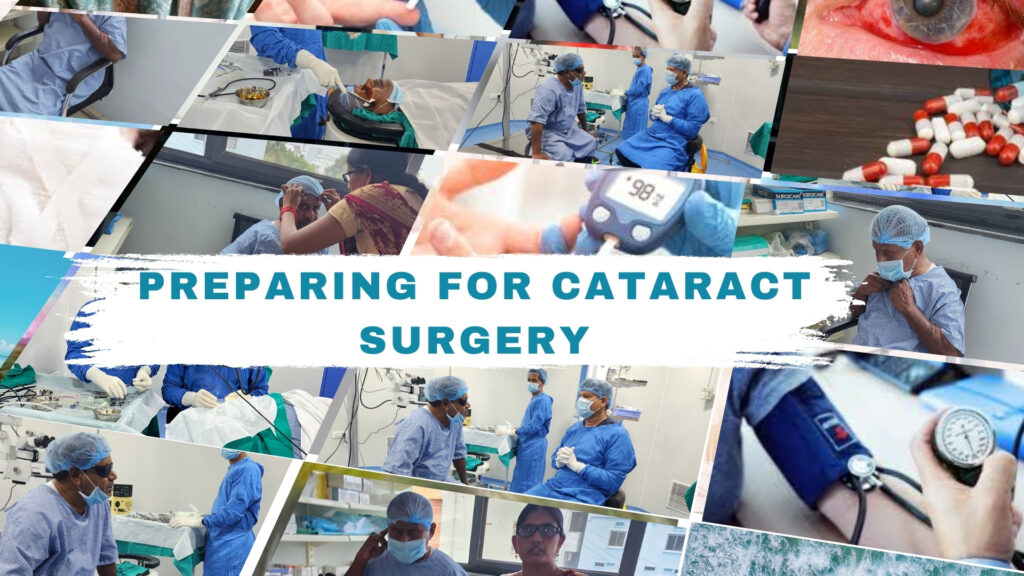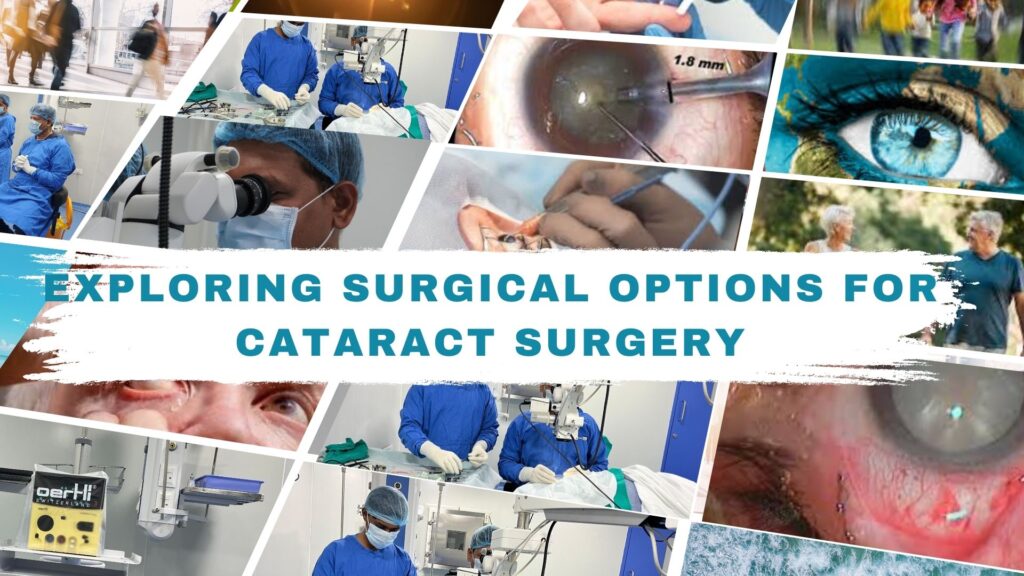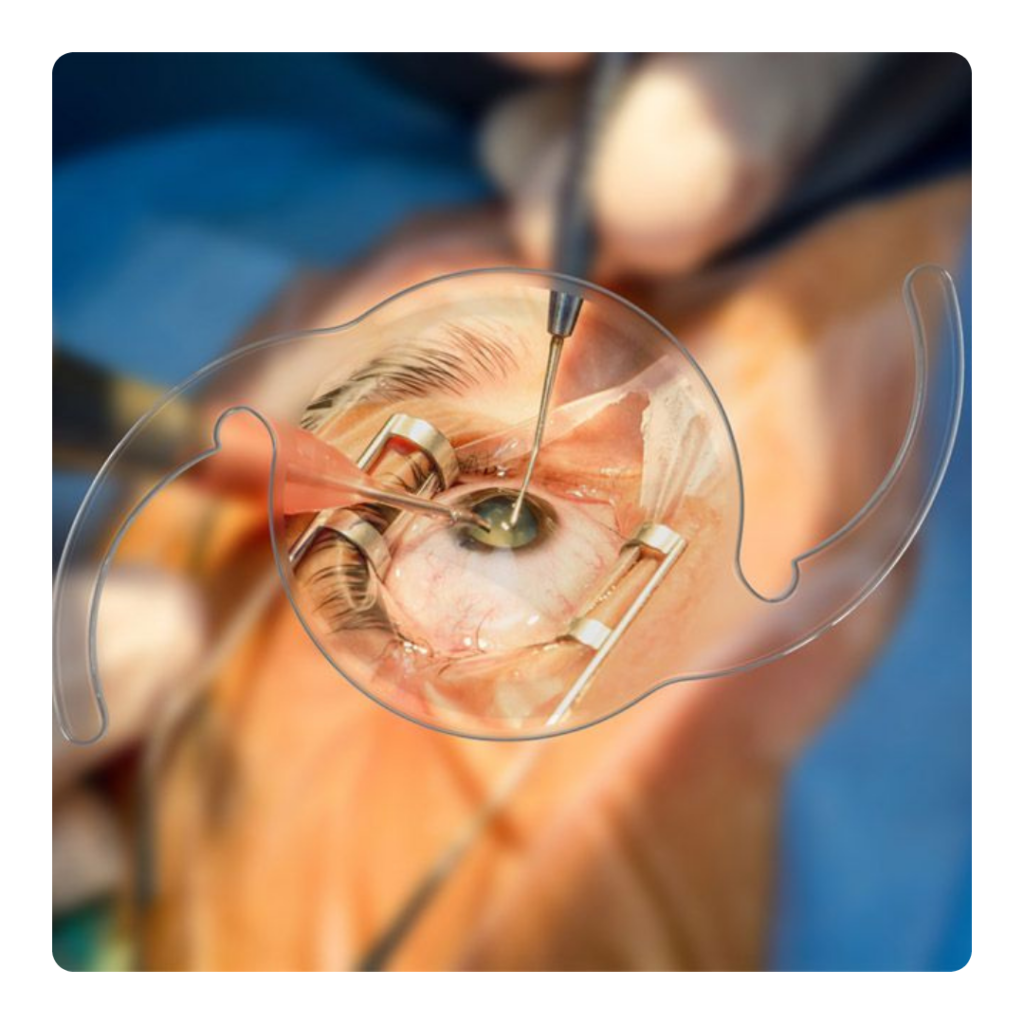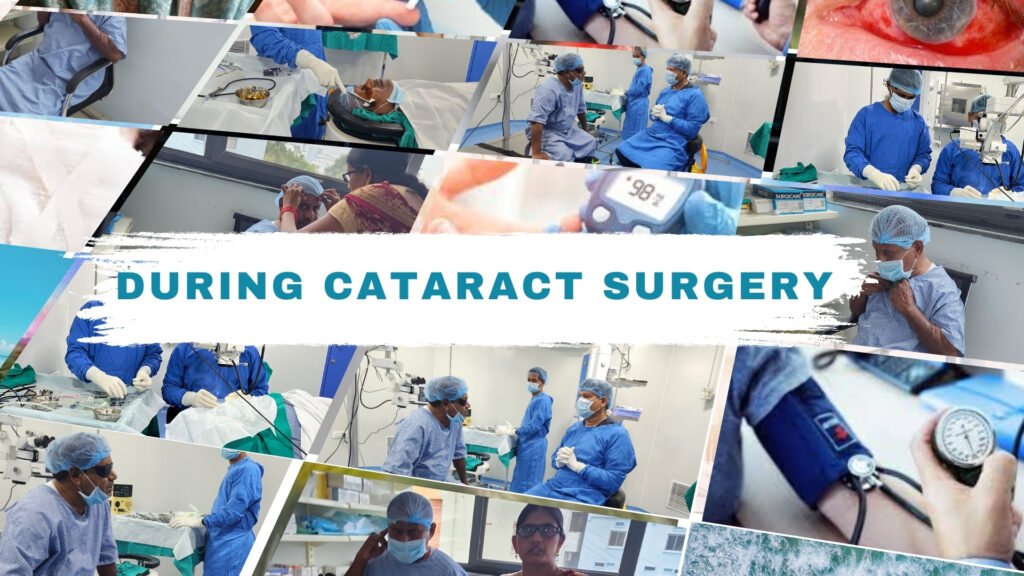How to Find the Best Cataract Surgeon in Hyderabad: A Comprehensive Guide
How to Find the Best Cataract Surgeon in Hyderabad: A Comprehensive Guide How to Find the Best Cataract Surgeon in Hyderabad Imagine waking up every morning with blurred vision, struggling to see the world clearly. For many people, cataracts can take away the joy of simple moments—reading a book, driving, or even recognizing a loved one’s face. But here’s the good news: modern cataract surgery can restore your vision and transform your life. The key lies in finding the right surgeon who combines expertise, compassion, and cutting-edge technology to deliver exceptional results. Let’s explore how you can identify the best cataract surgeon in Hyderabad and ensure you receive the care you deserve. Why Choosing the Right Surgeon is Crucial Cataract surgery is more than just a medical procedure—it’s an investment in your future. While most surgeons in Hyderabad are skilled, not all offer the same level of care, expertise, or resources. The best cataract surgeon will provide: A safe and comfortable experience. Advanced techniques tailored to your needs. Long-lasting results that improve your quality of life. Choosing the wrong surgeon, on the other hand, can lead to complications, suboptimal outcomes, or even the need for revision surgeries. That’s why it’s essential to evaluate your options carefully. What Makes the Best Cataract Surgeon Stand Out? To find the best cataract surgeon in Hyderabad, consider these critical factors: 1. Expertise and Experience The best surgeons have years of hands-on experience performing cataract surgeries, including complex cases. Look for someone who has mastered advanced techniques like: Micro Incision Cataract Surgery (MICS): Minimally invasive, faster recovery, and fewer complications. Refractive Cataract Surgery: Corrects refractive errors like myopia, hyperopia, and astigmatism simultaneously. Laser-Assisted Surgery: Precision-driven, though not always necessary for every patient. Ask about their success rate, the number of surgeries they’ve performed, and whether they specialize in specific types of cataract treatments. 2. World-Class Infrastructure A surgeon is only as good as the tools and facilities they work with. The best clinics in Hyderabad boast: State-of-the-art diagnostic equipment for accurate assessments. Advanced surgical tools for precision and safety. Clean, hygienic environments that minimize the risk of infections. When visiting a clinic, pay attention to its ambiance. Is it clean, well-organized, and welcoming? These details reflect the clinic’s commitment to quality care. 3. Compassionate Staff and Patient-Centric Care The best cataract surgeons are supported by a team that prioritizes your comfort and well-being. From the moment you walk in, you should feel welcomed by: Friendly, smiling staff who guide you through the process. Clear communication about procedures, costs, and expectations. A calm, ambient environment that reduces anxiety and promotes relaxation. Remember, the best care isn’t just about technical skill—it’s also about how you’re treated as a person. 4. Access to Advanced Intraocular Lenses (IOLs) The type of intraocular lens used during surgery plays a crucial role in your post-operative vision. The best surgeons offer a wide range of IOL options, such as: Monofocal Lenses: For clear vision at a single distance. Multifocal Lenses: For sharp vision at multiple distances. Toric Lenses: To correct astigmatism. Extended Depth of Focus (EDOF) Lenses: For continuous vision without halos or glare. Make sure your surgeon explains which lens is best suited for your lifestyle and vision goals. 5.Transparent Pricing and Accessibility While cost shouldn’t be the sole factor in your decision, transparency matters. The best surgeons provide detailed explanations of costs, including consultation fees, surgery charges, and post-operative care. They also offer flexible payment options to make advanced treatments accessible to everyone. 6.The Ideal Clinic Experience: What Does It Look Like? Finding the best cataract surgeon in Hyderabad isn’t just about credentials—it’s also about the overall experience. Picture this: You walk into a clinic with a warm, inviting atmosphere. The receptionist greets you with a smile and guides you through the process. The waiting area is clean, quiet, and comfortable, with soothing lighting and calming decor. During your consultation, the surgeon listens attentively to your concerns, answers your questions patiently, and explains the procedure in simple terms. The staff ensures you feel valued and cared for at every step, from pre-surgery preparation to post-operative follow-ups. This is the kind of experience you deserve—and it’s exactly what sets apart the best surgeons from the rest. Why Shanthi Nethralaya is the Best Choice for Cataract Surgery in Hyderabad If you’re searching for a clinic that embodies all these qualities, look no further than Shanthi Nethralaya. Led by Dr. B. Shanthi Niketh, this renowned eye care center has earned a reputation for excellence in Hyderabad and beyond. Here’s why patients trust Shanthi Nethralaya for their cataract surgery needs: World-Class Infrastructure: Shanthi Nethralaya is equipped with cutting-edge diagnostic and surgical technologies, ensuring precision, safety, and optimal outcomes for every patient. Expert Hands: Dr. B. Shanthi Niketh is a highly skilled ophthalmologist with decades of experience in cataract, cornea, and refractive surgeries. Her expertise in advanced techniques like MICS and refractive cataract surgery ensures that patients achieve the best possible results. Patient-Centric Approach : From the moment you step into Shanthi Nethralaya, you’ll notice the difference. The staff is friendly, attentive, and committed to making your experience as smooth and stress-free as possible. Ambient Environment: The clinic’s serene and welcoming atmosphere helps patients feel relaxed and confident about their treatment. Every detail, from the decor to the lighting, is designed to create a calming environment. Affordable Excellence: At Shanthi Nethralaya, world-class care doesn’t come with a hefty price tag. The clinic offers competitive pricing and transparent billing, making advanced cataract surgery accessible to all. Trust the Best for Your Vision Needs Finding the best cataract surgeon in Hyderabad requires careful consideration of expertise, infrastructure, patient care, and affordability. When you choose a clinic that combines world-class facilities, compassionate staff, and expert hands, you’re investing in a brighter, clearer future. For those seeking exceptional eye care, Shanthi Nethralaya stands out as a beacon of trust and excellence. With its state-of-the-art technology, patient-centric approach, and the unmatched expertise of Dr. B. Shanthi Niketh, Shanthi Nethralaya










